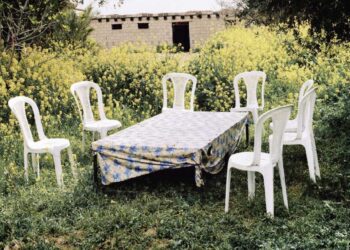On May 13, to celebrate Mother’s Day, my family and a small group of Ugandan friends gathered for a picnic at Hirschgarten in Munich. We shared Ugandan dishes cooked in my tiny kitchen, drinks contributed by various friends, and indulged in conversation and laughter. The younger children gifted handwritten appreciation letters to the two mothers present—myself and another woman—while the teenagers gave us each a single white rose. Akenke*, a young woman I had met earlier, surprised me with a crimson rose wrapped in white paper. She hugged me and whispered, “You remind me of my strong mother, back home.”
Overwhelmed by the love and connection, I prayed for everyone present, especially for the two recent arrivals from Uganda seeking asylum. We moved our blankets to a sunnier spot in Hirschgarten and danced to Luganda music, embracing the warm spring day with joy and solidarity.
Though we were far from home—over 5,000 kilometers away from Uganda—we had forged a strong, supportive community in Munich, a place where most of us were strangers. Ubuntu—the belief in collective well-being and mutual care—flourished even in this deeply individualistic, neo-liberal society. The spirit of “I am because we are, and we are because I am” anchored our relationships, strengthening the bonds between strangers turned friends.
During the picnic, Akenke shared her excitement about moving to new accommodation closer to Munich after months in a reception center. Having completed the first phase of her refugee status determination process, she looked forward to cooking her own meals again and escaping the repetitive German diet of bread, potatoes, and chicken. We discussed her plans to focus on learning German and pursuing a master’s in Legal Media Informatics. I wished her luck, feeling hopeful for her future.
The struggles of asylum: Life in Ottobrunn
A few days later, I was shocked to hear that Akenke was miserable in her new living situation. Though the accommodation was an improvement over the crowded reception center, she was horrified to find she had been placed in a room with a young man. For a woman seeking asylum based on her persecution for her sexual orientation and gender identity, sharing a sleeping space with a male stranger felt invasive and unsafe.
I recognized the name of her roommate and knew him to have previously made sexual advances on my teenage daughter and her friends, which worried me further. I advised Akenke to request a room change, especially since the facility had several unoccupied rooms. She contacted the administration, only to be told that her gender was misrecognized based on her name—an excuse that didn’t hold up since her official records clearly identified her as female.
She was eventually moved to another room, but it had only one bed and one mattress, which she had to share with another woman, a stranger. She feared the lack of privacy, the hygiene concerns, and the potential health risks, especially during the hot summer. We discussed options, including her staying with me temporarily, but she chose to remain where she was. I promised to assess the situation during her housewarming party that weekend.
A housewarming marred by conflict
On May 19, I traveled to Ottobrunn with a friend, bringing groceries for Akenke’s housewarming. Upon arrival, we encountered issues with the security guards, who insisted on speaking in German despite my repeated explanations that I only spoke English. The only man among the security guards insisted on raising his voice at me in German, so I eventually responded slowly in Luganda language, causing my friends to laugh at the absurdity of the language barrier.
Eventually, a Black female guard from Nigeria spoke to me in English, referring to me as her “African sister.” She mentioned that all visitors needed to register, and, after checking our bags, allowed us to proceed to Akenke’s room.
During this interaction, I asked the guard about the mix-up with Akenke’s room and why she had been placed in a room with one mattress with a woman stranger. The guard responded dismissively, saying, “Many Ugandan women who come here are homosexual, so sharing a bed with another woman shouldn’t be a problem.”
I was appalled by her generalization and asked, “Is it okay if you and I go upstairs and share a bed?”
“God forbid!” she exclaimed.
Her comment exposed the discriminatory assumptions underlying the asylum system, reinforcing stereotypes about Ugandan women and trivializing the challenges Akenke faced.
She proceeded to tell me how she found a bible inside Akenke’s room and wondered how a queer asylum seeker could be religious. I told her it was unacceptable for her to make assumptions about Akenke’s religious practice or her sexuality. I stressed my disappointment that security guards in asylum shelters were not adequately trained to avoid re-traumatising the asylum seekers who were in their custody.
Frustrated, I took a photograph of the guards, intending to report the incident to the management.
Criminalized for seeking justice
The moment I informed the guards that I had taken their picture, the situation escalated. The Nigerian guard demanded I delete the photo. When I refused, citing the need for evidence, she and her colleagues threatened to call the police. Undeterred, I told them to go ahead and call the authorities, as I planned to file a report myself.
The police arrived and, instead of addressing my concerns, sided with the guards. They ordered me to delete the photos and, when I refused, confiscated my phone. I was handed a protocol citing criminal charges under the German Criminal Code for taking photographs without consent. To my shock, I was also issued a house ban, preventing me from entering any asylum accommodation in Bavaria.
Determined to expose the injustices, I shared my story in a Facebook Live video, questioning the legality and morality of prohibiting the collection of evidence in cases of abuse. I also launched the #Photo4AsylumDignity campaign, encouraging other migrants to document and report similar experiences of dehumanization.
Fighting for justice
Today, I face criminal charges for taking and sharing photographs that reveal the mistreatment of a queer Ugandan asylum seeker. I am also contesting the house ban in administrative court, a legal battle that has become as much a fight for human dignity as it is for justice.
These legal challenges raise crucial questions: How can one collect evidence of abuse in a system that criminalizes documentation? How do we expose the wrongs within asylum shelters when the law protects those who perpetuate harm?
I may be found guilty in court, but I refuse to let that silence me. If my conviction draws attention to the plight of queer Ugandan asylum seekers and the dehumanizing conditions they endure in Bavaria in 2024, then it will have been worth it. Should I be imprisoned for my actions, make some noise, when you hear about my imprisonment.
*Pseudonym used to anonymize and protect the identity of this individual who is still waiting for results of her refugee status determination.








